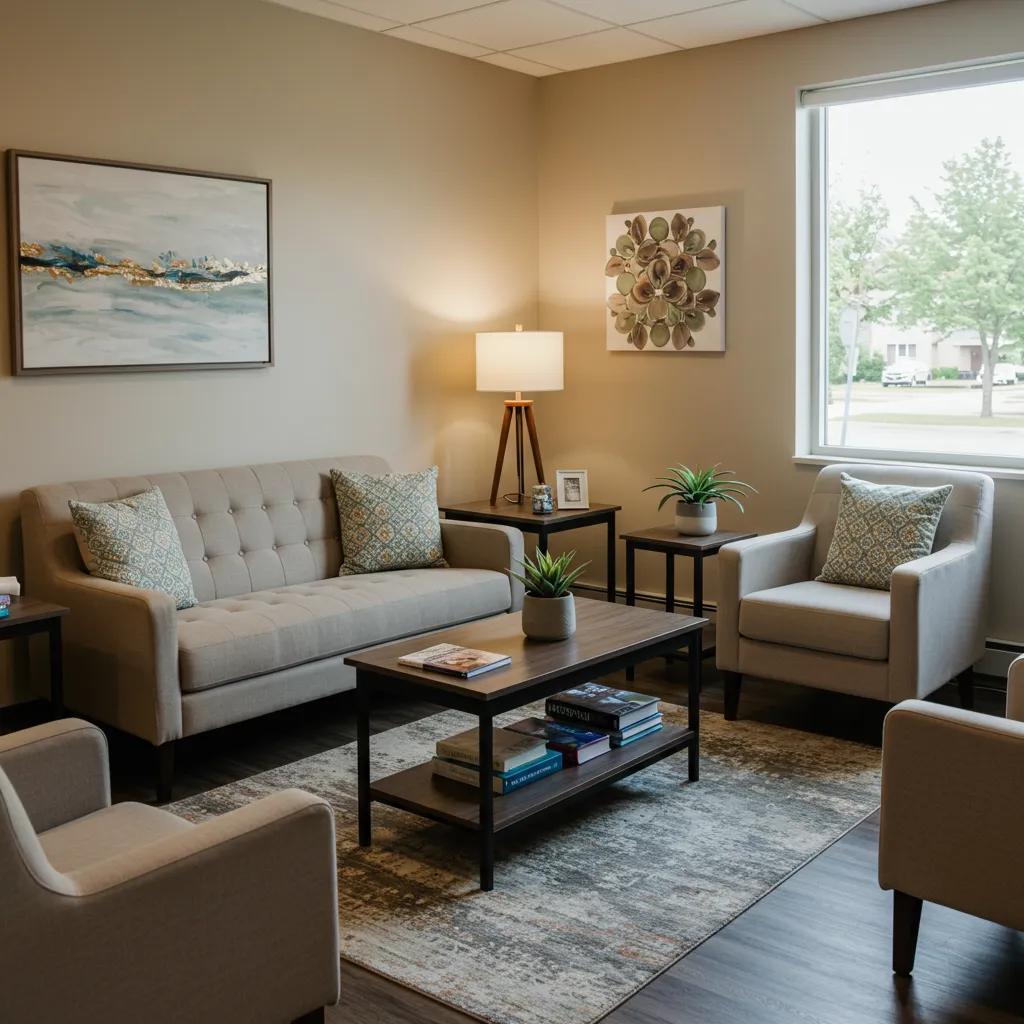Addiction is incredibly common. In fact, in the United States, an estimated 18.5 million people suffer from a substance use disorder. Yet, data shows that just 4.2 million people received treatment in each 2019 and in 2018. This means that over 14 million people are not receiving the help they need to recover. And, that’s common with substance use disorders, because addiction contributes to avoiding treatment.
In fact, most people avoid treatment for reasons that can be worked around. For example, costs, having responsibilities, or the fact that they deny having a problem to begin with. Needing treatment can make you feel powerless. It can make you feel weak. But, those feelings are based on stigma and the idea that addiction is a personal weakness. We know that addiction is a mental health disorder, based on complex physiological and psychological problems – there is no shame in having a problem. However, it is important to move past excuses, to deal with needing help, and to move forward to getting treatment.
If you or a loved one is making any of these 8 excuses, they are just that, excuses.
1. I Don’t Have a Problem
Most people are aware of the fact that denial is a large part of addiction. In fact, denial is a form of cognitive dysfunction, which many people with substance use disorder use to protect themselves. That relates to social stigma surrounding addiction. It also relates to the fact that admitting to an addiction means admitting to being helpless. If you’re addicted to a substance, you cannot stop using it, and that can severely impact self-esteem, self of self-worth, and how others see and think about you.
Denial is a barrier for nearly everyone. It’s easy to say, “I don’t have a problem”. That’s especially true for those of us who engage in hiding tactics. For example, if you fill up a liquor bottle with cheaper liquor, if you hide bottles so you don’t see them, or if you hide pills after using, etc.
The harder you make for it to keep track of how much you’re using, the more you will lose track – to the point where you might not even be aware of how much something has gotten out of hand. That can make acknowledging and facing that problem significantly difficult.
The thing is, anytime you’re drinking consistently every day, using drugs or alcohol to cope, taking medication outside of a prescription, or taking substances in situations where they could endanger you, others, or your career – you have a problem.
Get your question answered now.

2. I Can Just Quit Alone
It’s extremely easy to tell yourself you can do things on your own. That’s why many addicts choose to go “cold turkey”, spend a few sick days in bed, and then go back to work, school, or their life. The thing is, addiction or a substance use disorder is a complex mental health disorder. There are mental symptoms and behavioral problems that don’t just vanish when you stop using or drinking. You’ll still experience cravings. The problems underlying your original substance abuse are still there. If you try to quit without dealing with those problems, chances are high that you will relapse. Except, when you do, your chemical tolerance will have gone down, and you’ll be at greater risk of overdose and complications.
That’s especially true if you’re using a substance like a benzodiazepine (Valium, Xanax), which can cause life-threatening seizures. Getting help and medical monitoring during detox can literally save your life.
3. I Have to Take Care of X
While it’s true that many of us have responsibilities like work, school, caring for family, etc., those responsibilities should not get in the way of treatment and care. This can be a valid excuse. Childcare doesn’t just go away. If you don’t have parents or close friends who can take on helping your child – you’ll have to find a treatment center that offers daycare. If you’re caring for elderly relatives, getting them into hospice care for the duration can be prohibitively expensive and time-consuming. However, there are always work-arounds and there are always solutions. If you constantly find someone or something else as a reason not to go to treatment, you are essentially denying yourself the treatment.
4. I Don’t Have Time
This excuse to avoid treatment ties into the one above. However, it’s usually less about responsibilities and more about filling your time. That often means work, having things planned, going on vacation, participating in sports, or volunteering, or otherwise doing things with your time. Having the freedom to take off work for treatment is also something many Americans don’t have. However, you can always take up to 12 weeks of FMLA leave. This is essentially 12 weeks of “don’t ask, don’t tell” time off, for personal or family health reasons. Your boss doesn’t have to know what it’s for. However, they are legally obligated to grant it to you. That gives you more than enough time to seek out treatment.
However, even if that weren’t an option, many treatment programs are designed to fit into busy lives. You can’t attend outpatient detox. However, you can attend outpatient therapy, with treatment hours set on weekends, early in the morning, or at night after work. Programs are designed to be part of your life and to not conflict with your other responsibilities. While you will have to lose some social obligations, you can always go to treatment.
5. I Can’t Afford It
It’s true that substance use treatment is expensive. However, that shouldn’t be a barrier to getting help. For example, the Affordable Care Act (Obamacare) mandates that addiction treatment is covered by your insurance. However, the amount covered will vary per provider and per type of treatment. If you want your treatment provider to cover the maximum possible costs, you should look for an outpatient program. In addition, many areas offer significant help with getting treatment, mostly in the form of grants and sponsorships to attend programs. You’ll have to check your local area to see what might be available to you.
6. I’ll Do It After X
Putting things off until a certain date can make sense in a small number of scenarios. For the most part, setting a date on when you get treatment is an excuse. For example, “I’ll get treatment when I graduate”, “I’ll get treatment when we get the new house”, “I’ll get treatment after that promotion”, etc.
These can be self-negating. For example, addiction can prevent you from achieving any of those goals. While you mean well in trying to clear up things on your “to do list” before moving forward with your life, substance use disorders are an impediment. If you set deadlines, make them date-based and if you don’t achieve the thing by that date, make sure you get treatment anyway.
7. I Don’t Want People to Think I’m an Addict
While it can be very valid to be discrete about getting treatment, it’s never a reason not to get treatment. It’s fully possible to seek out treatment out of state or in another town, where no one will know what you are doing. Your boss doesn’t need to know you’re not dealing with a family member’s private emergency. Your friends don’t need to know where you’re going. While you should be honest to those closest to you, it’s up to you when and how you share.
8. Rehab Won’t Work
Many of us have heard the concept that addicts aren’t made, they’re born. While genetics and epigenetics play some role in vulnerability to addiction, they don’t mean you’re an addict for life. Substance use disorders are treatable and can be recovered from. In fact, most people who receive drug addiction treatment return to full health just 2 years after starting treatment. While it takes 90+ days for your brain to start producing dopamine and serotonin at the same levels as pre-addiction. Recovery takes time, but it isn’t impossible. Plus, it is very true that people will always have a high rate of relapse. Something like 38% of all people who receive cognitive behavioral therapy eventually relapse. But, that rate is closer to 90% without treatment. So, getting treatment isn’t a sure thing, but it certainly improves your chances of recovery.
Eventually, getting treatment is the best way to step away from substance abuse and towards recovery. It’s not a guaranteed thing. There can also be many obstacles. However, it will help you to learn the skills and coping mechanisms you need to live a happy life, without drugs and alcohol.
If you or a loved one is struggling, help is there. And, it can help you to get back to normal. If you need help with mental health treatment, drug rehab, or alcohol rehab Compassion Recovery Center is here to help. Contact us to ask about our mental health programs and how we can support your specific requirements as you move into treatment.










